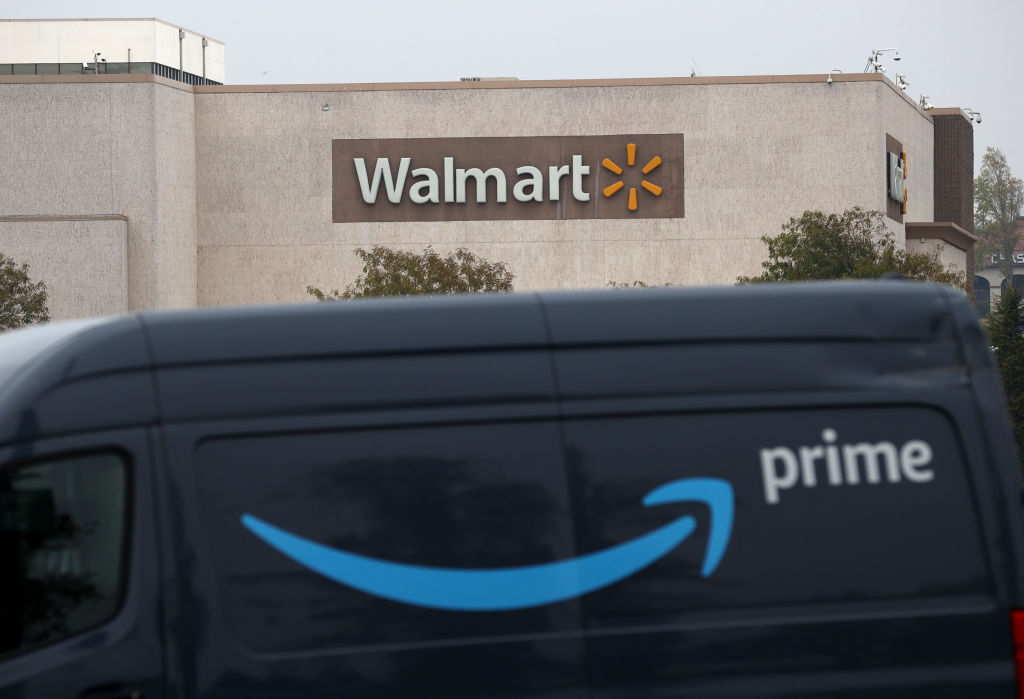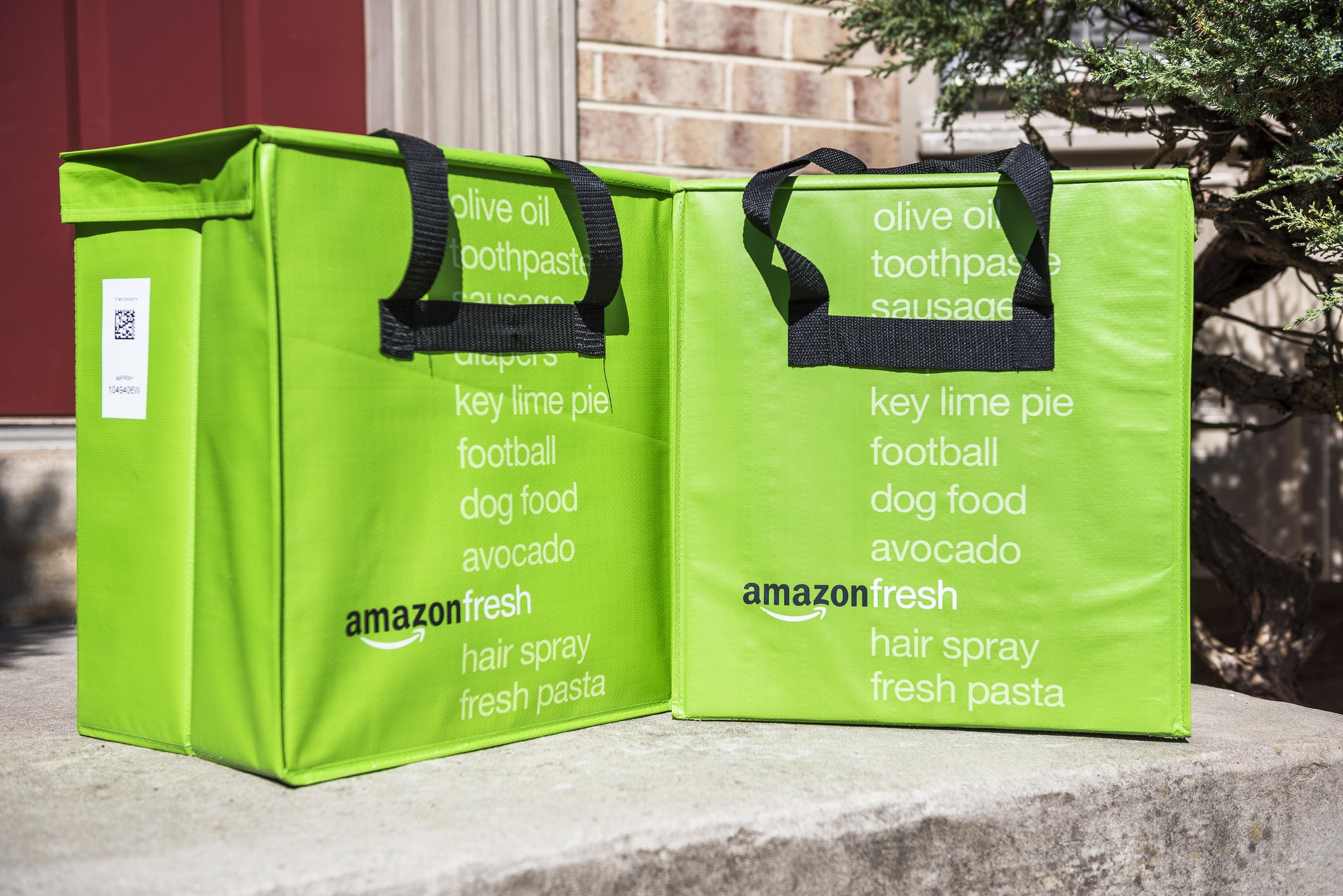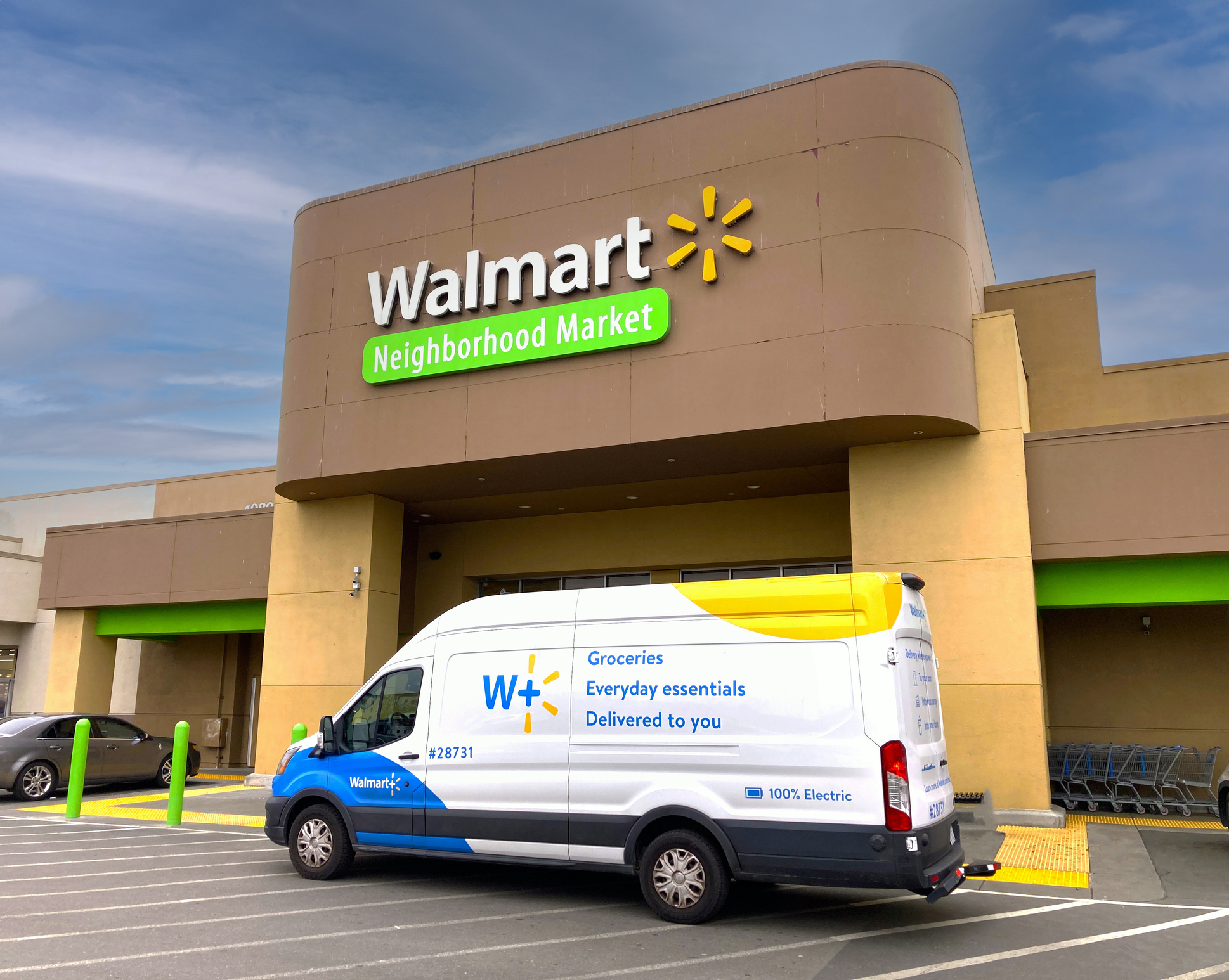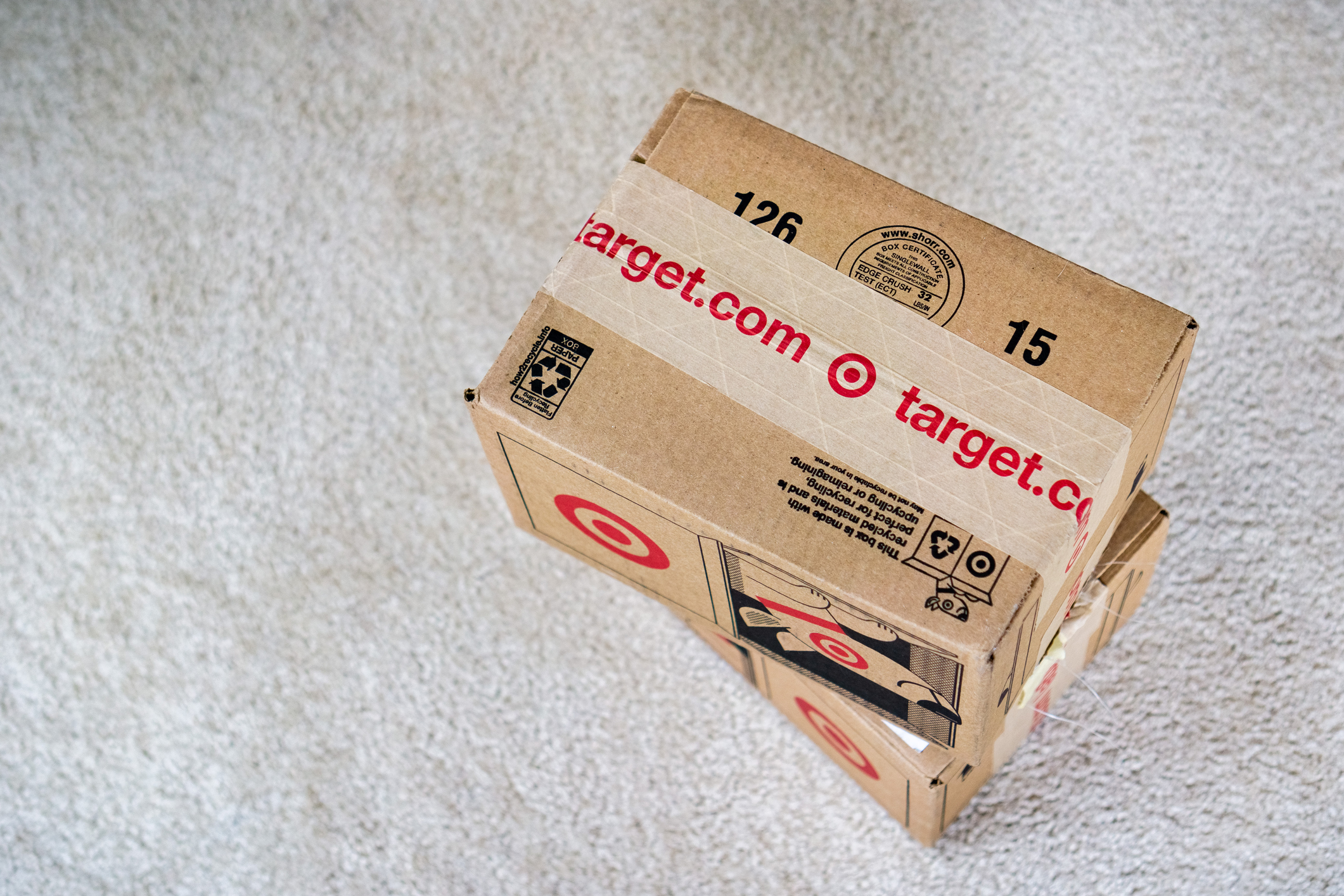
As prices continue to rise on things like coffee, butter, eggs and household goods, more people are turning to discount retailers to save on groceries and other consumables. When it comes down to the battle of two of the retail behemoths, Amazon vs Walmart, shoppers are asking which one has the cheaper prices online.
One study says it’s Amazon all the way. In 2024, Profitero, an internet commerce analytics platform, released a report called the Price Wars study, which pitted Amazon and Walmart against each other, along with a handful of other key retailers.
The report found that, in addition to grocery prices, Amazon had the lowest prices on video games, appliances, fashion and sports and outdoors. But it held only a narrow lead in beauty and toys.
Profitero compared non-sale prices of approximately 14,000 items across various leading online retailers.
The report concluded that Amazon had lower prices than Walmart and 12 other U.S. retailers, including Best Buy, Chewy, CVS, Dick’s Sporting Goods, Gamestop, GNC, The Home Depot, Kohls, Lowes, Macy’s, Nordstrom, Petco, PetSmart, Target, Ulta, Walgreens, Walmart and Wayfair.
How much lower? On average, the study found Amazon’s prices were 14% lower. That’s a 2% difference from last year, indicating competitors are closing the gap.
Only a 5% gap separated Walmart's and Amazon's prices across identical items. Compared to last year, Walmart became more competitive in 10 categories, including video games, fashion, and home improvement.
"Amazon’s and Walmart’s solidifying price leadership has significant implications for retailers, not just for sales but advertising investments as well,” said Mike Black, CMO of Profitero.
“If a retailer’s product ads show up alongside competitors with much higher prices, their conversion rates and ROI won’t be great. If you can’t beat ‘em on price, beat ‘em on agility.”
Here's how Amazon and Walmart stack up overall on prices.
Amazon vs Walmart: Who has the cheapest grocery prices?

Amazon’s acquisition of Whole Foods in 2017 sparked a rivalry between Walmart and Amazon that is still raging today. Both mega-retailers are fighting hard to be your go-to shop for groceries. Both offer convenience, selection and savings that extend well beyond just groceries. But how do they compare and who has the lowest prices? Let's break it down.
Amazon Fresh
Amazon Fresh is an online and physical grocery store that offers low prices, same-day delivery and free pickup, but it’s only available in some areas. The service offers low prices on many of your favorite brands.
Plus, you can get weekly deals delivered to your inbox or visit the weekly in-store deals page, and earn 5% back at Amazon Fresh when you use your Prime Visa with an eligible Prime membership.
The good news is that anyone can shop at Amazon Fresh stores. To use Just Walk Out shopping or Amazon Dash Cart you will need to have an Amazon account with a linked credit or debit card.
If your order is over $100, you can get 2-hour delivery free with Prime and you won't incur a service fee.
Delivery orders under $100 with 2-hour delivery windows come with a service fee of $6.95 for orders $50-$100, and $9.95 for orders under $50 for Prime members. But if you plan to use the service more than once a month, Prime members can get unlimited free delivery on Amazon Fresh (or Whole Foods) orders over $35 for just $9.99 per month.
If you're not a Prime member, charges vary between $4.95 and $13.95 for 2-hour delivery depending on basket size. Additional fees are charged for rush and one-hour orders.
Customers in some areas with delivery time flexibility of up to six hours will receive a reduction in fees. Grocery pickup at all of Amazon’s Fresh Stores and Fresh pickup points is free.
GrubHub Plus for Amazon Prime Members
Don’t forget, every Prime membership comes with a free Grubhub Plus. Amazon says this free service saves their customers $300 annually in delivery charges.
With their free Grubhub Plus subscription, Prime members get $0 delivery fees on eligible orders over $12, lower service fees, 5% credit back on pick-up orders, and exclusive offers.
Amazon Whole Foods
Seven years ago, Amazon purchased Whole Foods for $13.7 billion. Since then, Amazon has made a lot of changes to the specialty grocer, including embedding checkout technology and lowering prices at its 500-plus U.S. locations.
It is now one of the biggest organic food stores in the U.S. While prices are considerably higher than in regular grocery stores, the food is generally of a higher quality.
You can get your groceries delivered from the organic grocer, but the same delivery fees and order minimums that you'll see on Amazon Fresh apply to your Whole Foods orders, too.
When comparing products offered at Amazon Fresh and Whole Foods, the prices are quite a bit higher at Whole Foods (but customers agree the quality is better).
However, Prime members can save an extra 10% off sale prices, plus get deals on seasonal favorites. You can apply for the Whole Foods Visa card and earn 5% back with Prime Visa and an eligible Prime membership. Check out Whole Foods weekly in-store deals.
Walmart Plus Has Cheaper Grocery Delivery, Though

A Walmart Plus membership has numerous benefits for members, and the retailer offers grocery prices that are generally lower than at Amazon’s Whole Foods Market.
Walmart has also made strides over its competitors (Target included) in its local produce and organic offerings, which has helped it attract wealthy shoppers to its stores.
It has also added household essentials like pet food and cleaning supplies. Overall, Walmart offers more brands, with over 175,000 items available in-store.
When it comes to grocery delivery fees, Walmart beats Amazon. Walmart Plus members get unlimited free delivery on orders worth $35 or more. Combine that easier-to-meet minimum order with the fact that Walmart Plus is cheaper than Amazon Prime, and Walmart definitely wins when it comes to cheaper delivery fees.
That includes same-day delivery where available. The only catch: delivery scheduling is on a first come, first serve basis. So the fastest delivery available to you depends on how many other shoppers are fighting for those same-day time slots.
In-store, Walmart Plus members also get access to the scan-and-go service. Just scan the items you want to buy with your phone, pay with a credit or debit card, and head to the self-checkout when you’re done.
Then scan the QR code that’s generated by the app, get your receipt and let a store associate know you’ve already paid.
A Walmart Plus membership costs $12.95/month or $98/year, but right now you can try Walmart Plus Free for 30 days.
In comparison, Amazon Prime, which you need to use with Amazon Fresh, costs $14.99 per month, or $139 per year.
Amazon vs Walmart vs the rest of the pack

- The competition between Amazon and Walmart is fierce. The study showed that the two companies have identical prices across identical products 65% of the time. Other retailers are catching up too. Chewy matched Walmart's price 94% on identical items while Home Depot did so 48% of the time.
- Amazon maintains a considerable price advantage in video games and fashion, with average prices around 12% and 5% lower than its closest competitors.
- Against Amazon, Target saw mixed results in its performance, with prices 13% more expensive than Amazon, compared to 16% last year. Target continues to close the gap on Amazon with their home furnishings and toys and games priced competitively.
- Only 1% and 3% separated Chewy and Petco from Amazon in pet supplies, making it the most hotly-contested category in the study. Chewy’s competition with Amazon is so fierce that they share the same prices 94% of the time.
- On average, CVS was 50% more expensive than Amazon for health & personal care items; Walgreens was 45% more expensive.
Here's a look at the retailers with the lowest everyday prices and the retailers with the lowest holiday shopping prices., according to the report by Profitero.
Category |
Lowest Prices |
Second Lowest Prices |
Percentage Difference Between Lowest and Second Lowest Prices |
Baby |
Amazon |
Walmart |
4% |
Beauty |
Amazon |
Walmart |
6% |
Health & Personal Care |
Amazon |
Walmart |
4% |
Household Supplies |
Amazon |
Walmart |
4% |
Pet Supplies |
Amazon |
Chewy |
1% |
Vitamins & Supplements |
Amazon |
Walmart |
3% |
The bottom line
Amazon continues to be an incredible value across the board. And if you have an Amazon Prime membership, you can save on shipping, returns and more on the streaming side with music, audio books and shows.
While Amazon has been successful, the gap is slowly closing. Chewy has been nipping on Amazon's heels for awhile, and on the fashion end, Nordstrom has really stepped up its game, becoming a quality second option tied with Walmart.







